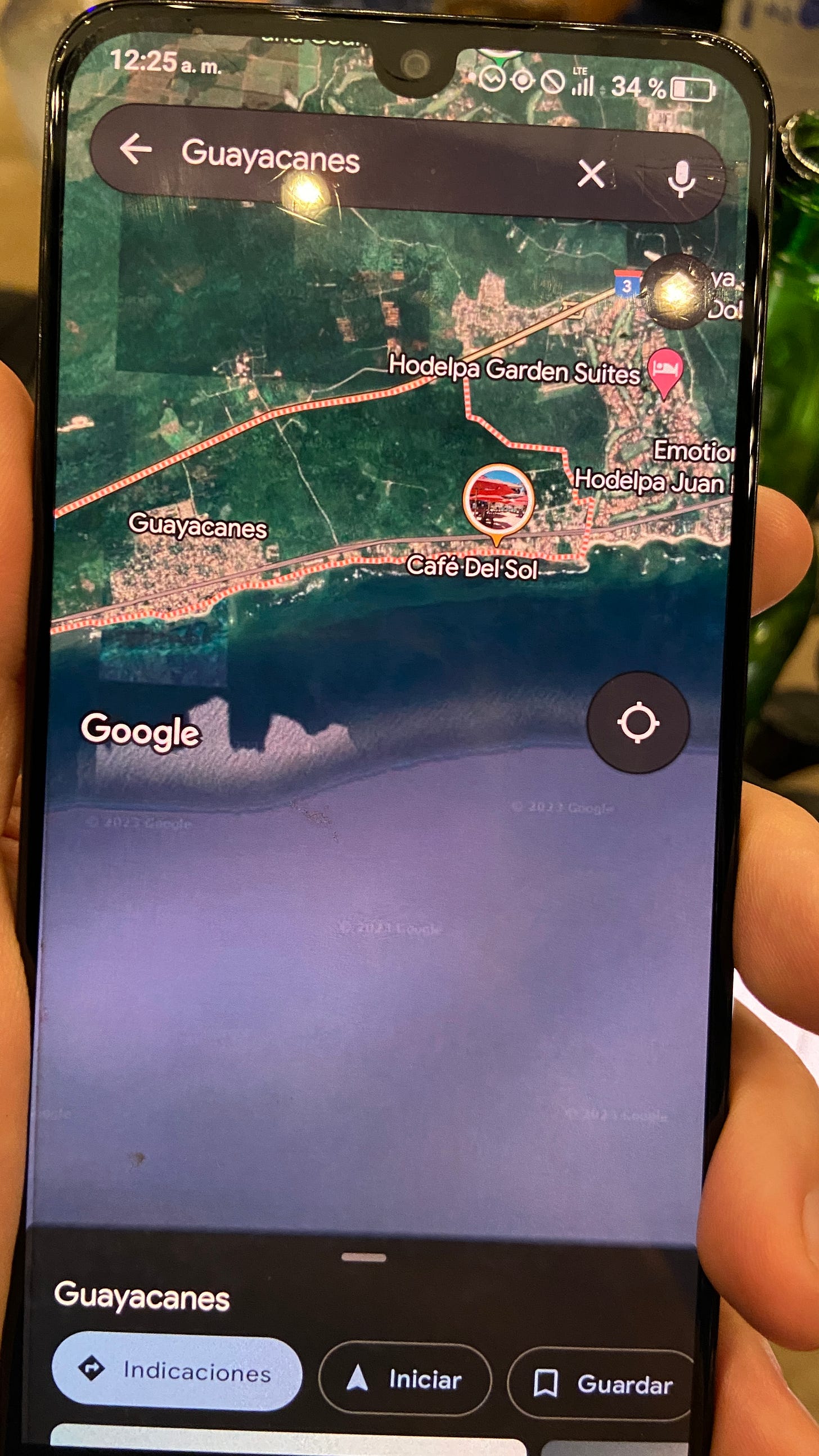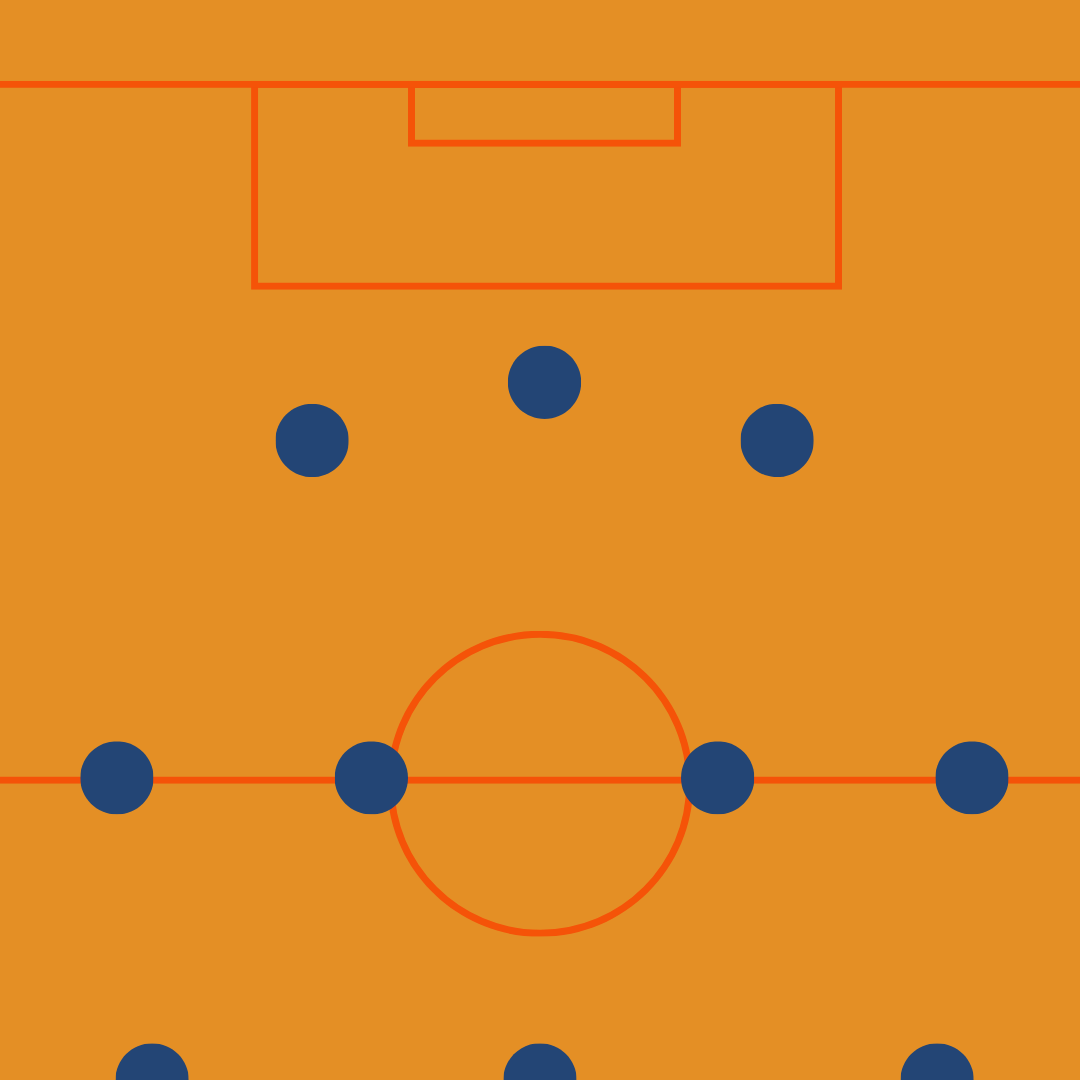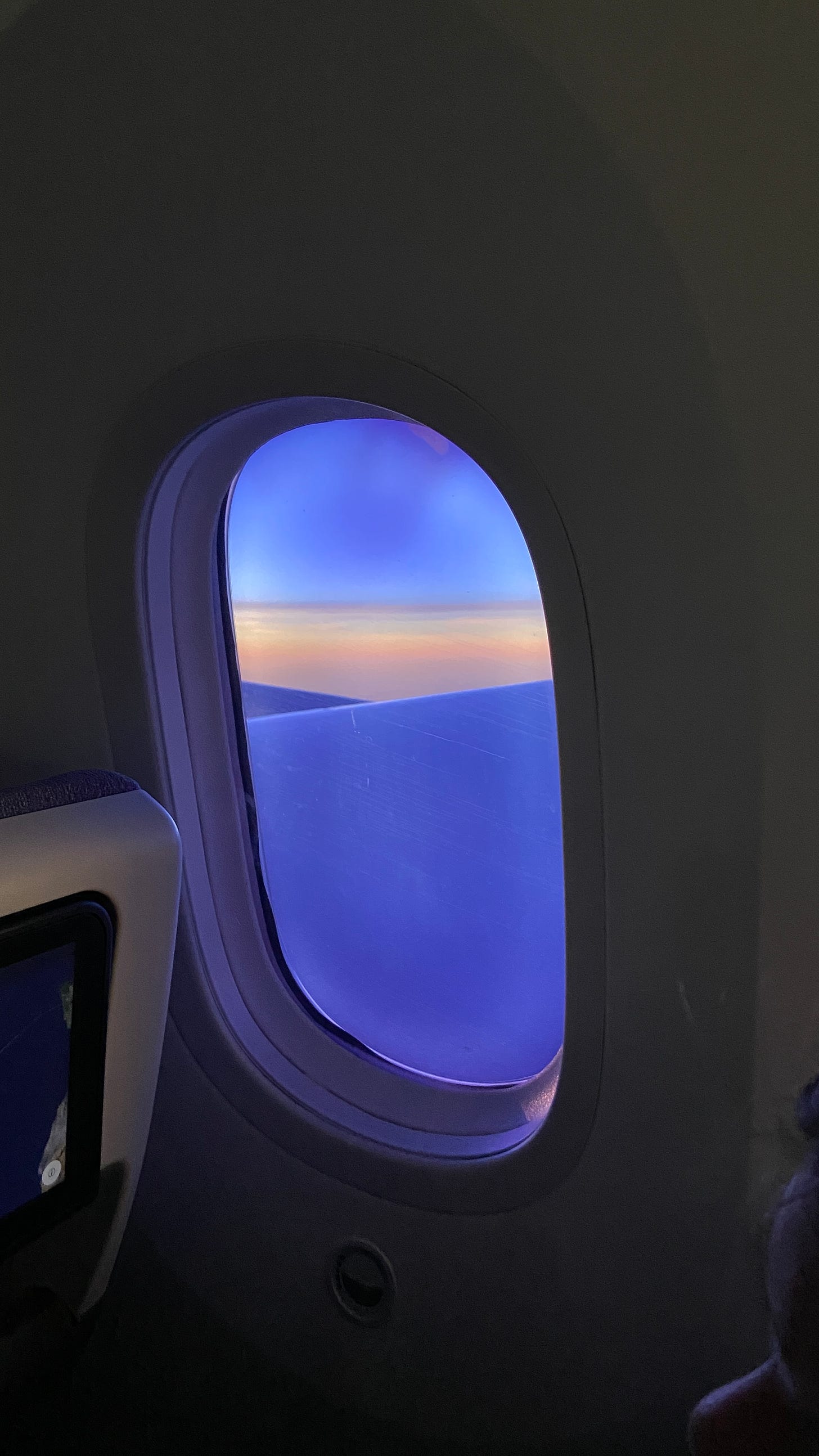Breaking Through
The interplay of travel, writing, and football
For a while now, we’ve been struggling to choose where to go next as nomads. Back when we started in August 2022, it was all new, and it was easy. But now there’s more at stake. We’re writing content for nomads, and we don’t want to go to a place that’s uninteresting to them. We’re more aware of the time, money, and effort costs of relocating, and we don’t want to end up regretting where we go. Travel planning is a skill that we want to get better at, and we don’t want to repeat any mistakes or let it become chaotic or dreary.
Personally, when I (Harrison) am feeling most unsure about where I want to travel, the thing that gets me unstuck is reminding myself why I want to travel in the first place. For me, travel is ultimately about meeting my need for uncertainty, breaking out of my comfort zone and experiencing the thrill of adventure and variety.
To be more specific, travel is at its best when I’m doing things differently. Gretchen Rubin’s Four Tendencies framework puts me squarely in the “rebel” quadrant. I don’t want to do what everyone else is doing. If others zig, then I want to zag, find doors nobody’s been through yet, open boxes nobody’s touched.

While all this has been going on, I’ve also been grappling with my writing. I’m always grappling with my writing. In fact, it’s probably the only thing in my life that gets harder the more I do it. That makes sense actually. If I didn’t like writing so much, I’d have given up on it ages ago. But because I’m obsessed with it, pay so much attention to it, and try to get better at it, I regularly encounter the edges of my skill set and live in what feels like a perpetual state of inadequacy, hence why my overarching feeling is one of struggle.
When I’m not grappling with travel planning or writing, there’s nothing I like doing more than watching good football. I watch Match of the Day (MOTD) and Match of the Day 2 (MOTD2) every weekend without fail, and I never miss a cup competition game in the FA Cup, the Champions League, the Euros, or the World Cup when they involve top teams.
Sometimes I even rewatch MOTD and MOTD2 throughout the week, getting just the same amount of pleasure from it the second or third time around. And when the football season ends for the summer, as it’s about to do shortly, I genuinely feel bereaved.
So taken by the beautiful game am I, that I often describe watching football as “the only thing I can do to truly recharge,” and I think that is pretty accurate. It’s not that I don’t have other ways of winding down (exercise and meditation work a treat); it's that watching football gives me a truly unique kind of regenerative pleasure. I get a deep sense of relaxation like no other. But I also feel like something’s being achieved.
This is really weird, because I know that elite football’s just a bunch of overpaid men kicking a bag of air around a field.
Not only that, but I’m quite a studious person who likes art and literature, and I don’t necessarily see myself as a football fan.
But somehow, someway, watching football re-energises me like nothing else. It feeds my soul (I mean that), and I realised recently – since there has been quite a lot of exciting football on – that the reason I love football is the same reason I love travelling and writing.
Travelling, writing, and watching football are so intoxicating to me because they are all about breaking through barriers. Travel offers a chance to pierce the boredom, the malaise, the over-familiarity and contempt I feel when I’ve had too much of my everyday life, and step forward, bravely and optimistically, into brand new territory that is fresh and odd and full of possibility and potential. I’m getting goosebumps right now just thinking about travelling!
This is how I feel about writing too. I strive for the same sense of uncertain meandering adventure on the page. I dream about setting out to explore unknown reaches of the world, and being the first to do so, in the same way that I dream about building connections between ideas, opening intellectual doors, and scoring incomparable thought goals.
Whilst I do love fiction, I gravitate towards non-fiction essay writing like that of Paul Graham, and Rachel Jepson’s Practice, Process, Craft, for example, because it promises so many opportunities for intellectual, philosophical and spiritual breakthroughs that I just can’t live without.
When I read a Graham or Jepson essay, their skill in thinking and writing enables me to feel like I’m making breakthroughs as I’m reading, which is thrilling enough. The acquisition of new knowledge or skills. A better or more nuanced perspective on the world. What could be better?!
But as a lover of writing myself, the really invigorating thing about essays is imagining the journey Graham and Jepson travelled on to write them. Writing essays is most fulfilling not when we’re taking a position and defending it (like we’re taught to do in school), but when they’re a humble, exploratory and fascinating journey for the writer, who sees a door slightly ajar, ventures inside, and is transformed by what they discover.

Football similarly sets my pulse racing when a player breaches the defensive line and scores a goal. They don’t even have to smash the ball into the net for it to be satisfying; it’s just as nice to watch them thread the ball gently through an impossibly narrow channel, or lob the goalie, or sneakily pass the ball under the wall they know will jump, bamboozling everybody on and off the pitch.
However the ball ends up in the back of the net, it’s the strategic and tactical breaking through, the crack in the wall, the shock of the new, the surprise reordering of experience, that keeps me coming back for more, and gives me such a potent elixir of relaxation and fulfilment.

So what can writing and football teach us about travel planning? The most pertinent answer is that we simply need to practise more travelling. Our dawdling and indecisiveness about where to go is the writer’s equivalent of staring at the blank page. Or the footballer’s version of sitting on the bench. We just need to get our boots on and get out there. There’s no substitute for that. When it comes to the pros, action happens before motivation.
They say it takes 10,000 hours to become an expert in something. We don’t know how many words on the page, balls in the net, or stamps in the passport that is, but we’d better get cracking. It’s not going to get any easier.
See you next time.
– Harrison & Corina

Help us score a literary goal and kick our readership into overdrive! Pass, shoot, and share this post with your fellow book-loving teammates to help us win the match of attracting more readers!




